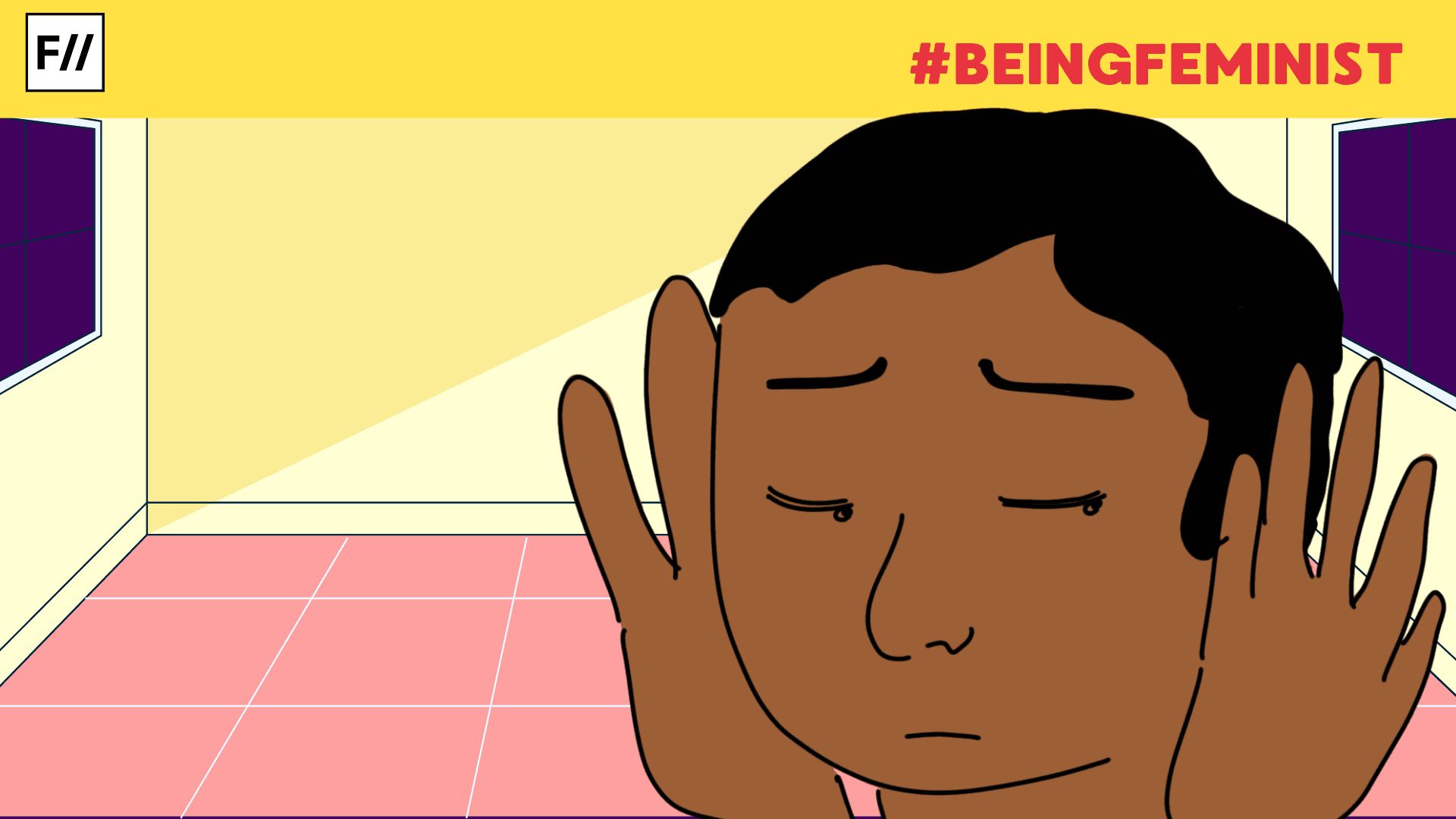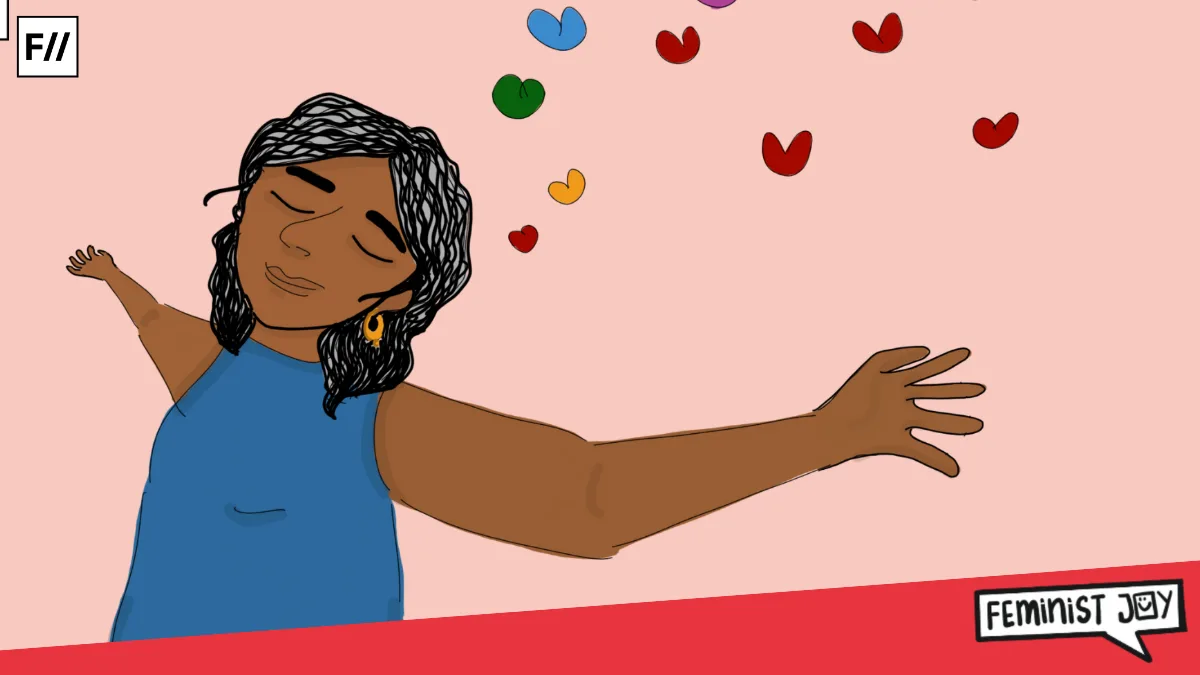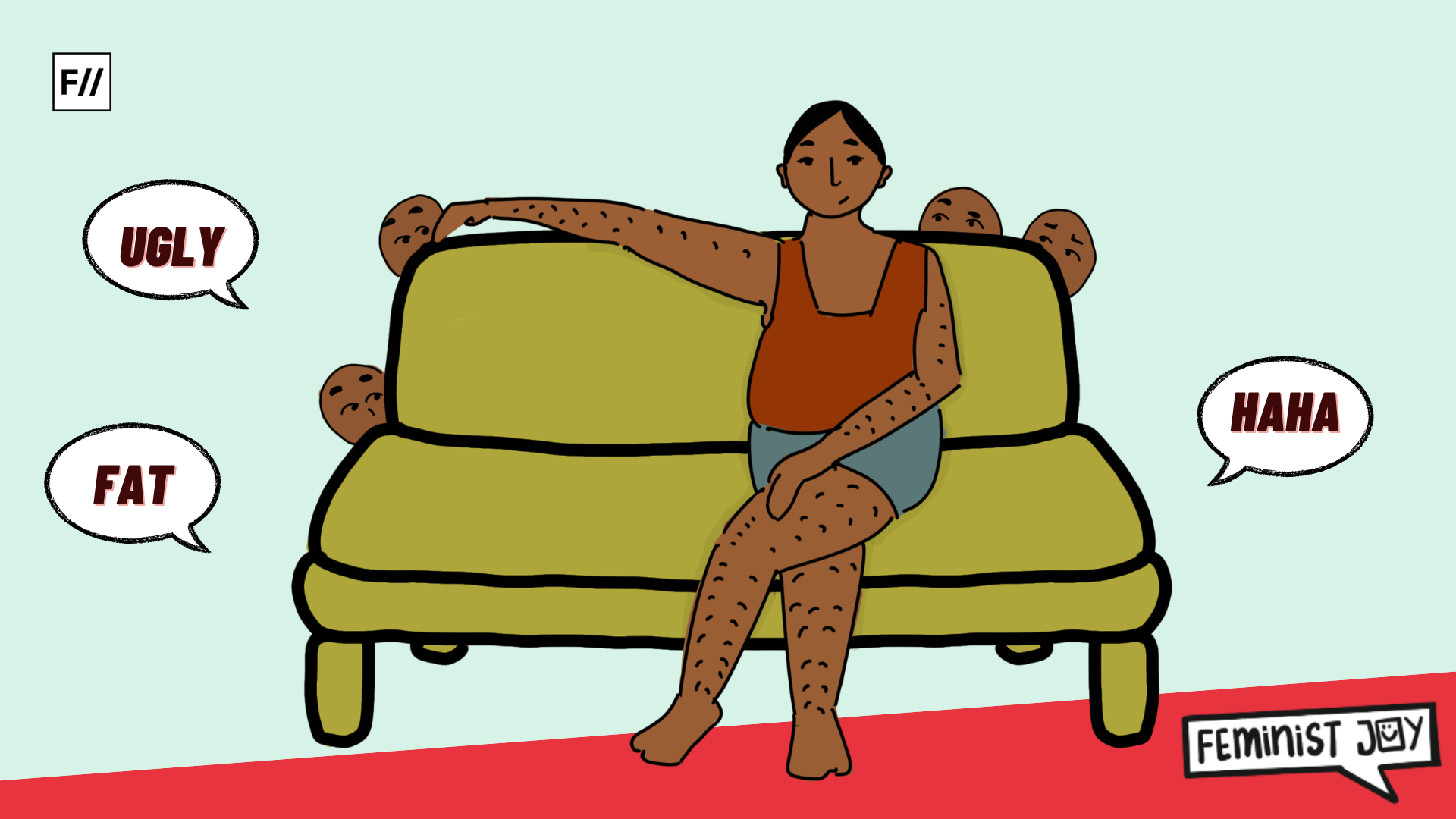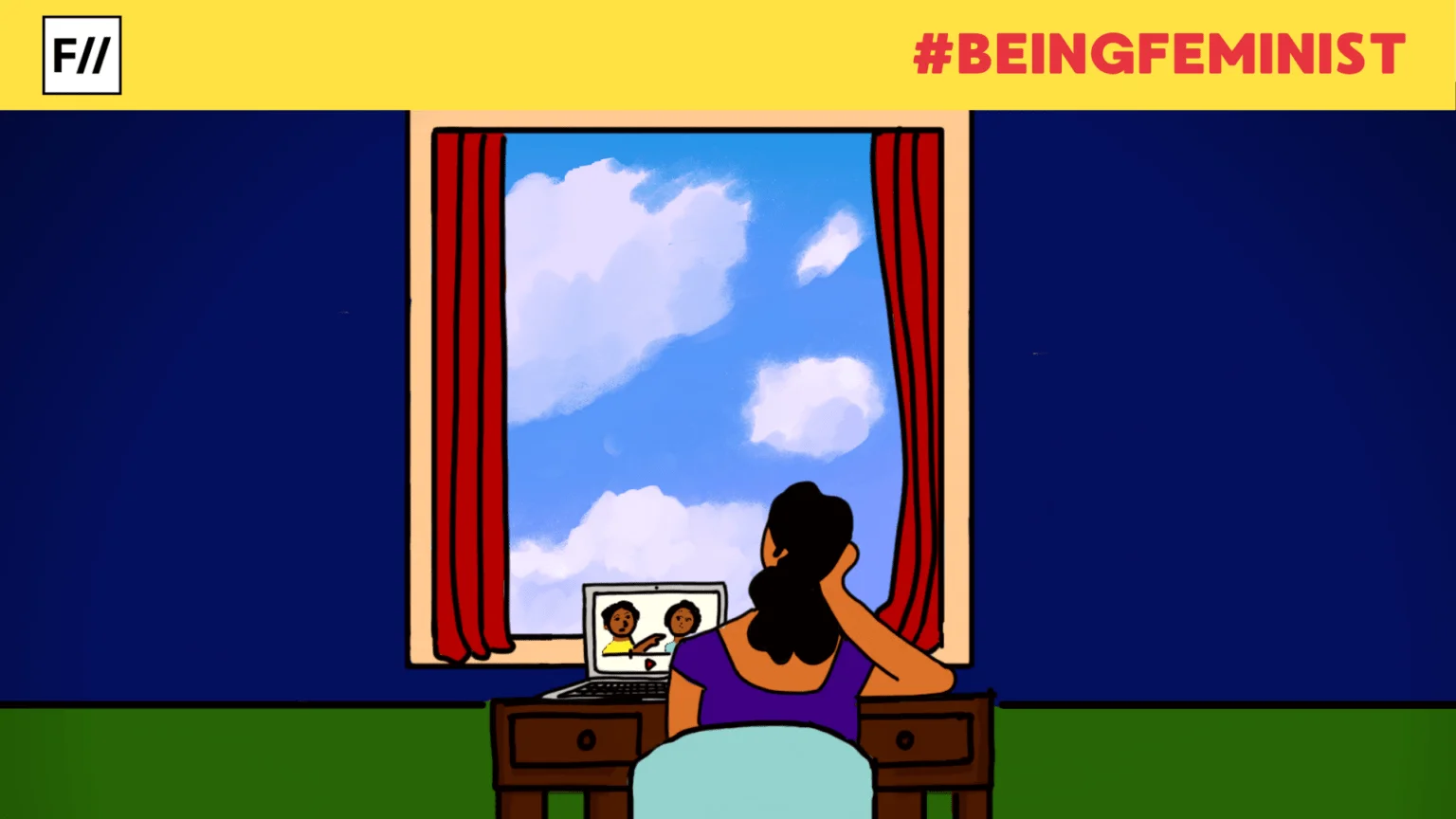Hailing from a rural and heavily orthodox space in Rajasthan, I belong to a Jaat household, where sons are expected to be manly, heavy chaps with a deep voice and an intimidating aura. From an early age, I never behaved how I was expected to and said I was too effeminate. More than that, I was a constant resistance to caste discrimination and misogyny in my household, which never went well with my Jaat family. They wanted to maintain their status in the “Jaat community.”. Sometimes I get tired of my constant struggle between being an intersectional feminist and Jaat, but one has to keep going.
What does it mean to be Jaat and queer?
What do Jaat men look like? How are they expected to behave? My father and grandfather always wear white pyjama kurtas, which, as per them, is ‘Jaaton ki shaan,‘ and smoke hookah, which is their symbol of pride of being a Jaat. I have three elder sisters, and they were born because, in a Jaat family, a son is very significant to carry their Jaat legacy.
In such a heteronormative Jaat household, one cannot imagine the life of a queer person and a feminist.
In such a heteronormative Jaat household, one cannot imagine the life of a queer person and a feminist. There was always this pressure while growing up to fulfil these Jaat male expectations. While being the youngest, I was expected to assist my sisters everywhere, my walk was too feminine for them and I needed to have a deeper voice. Where being queer becomes an inappropriate act for their caste, if you are a feminist, your struggle double.
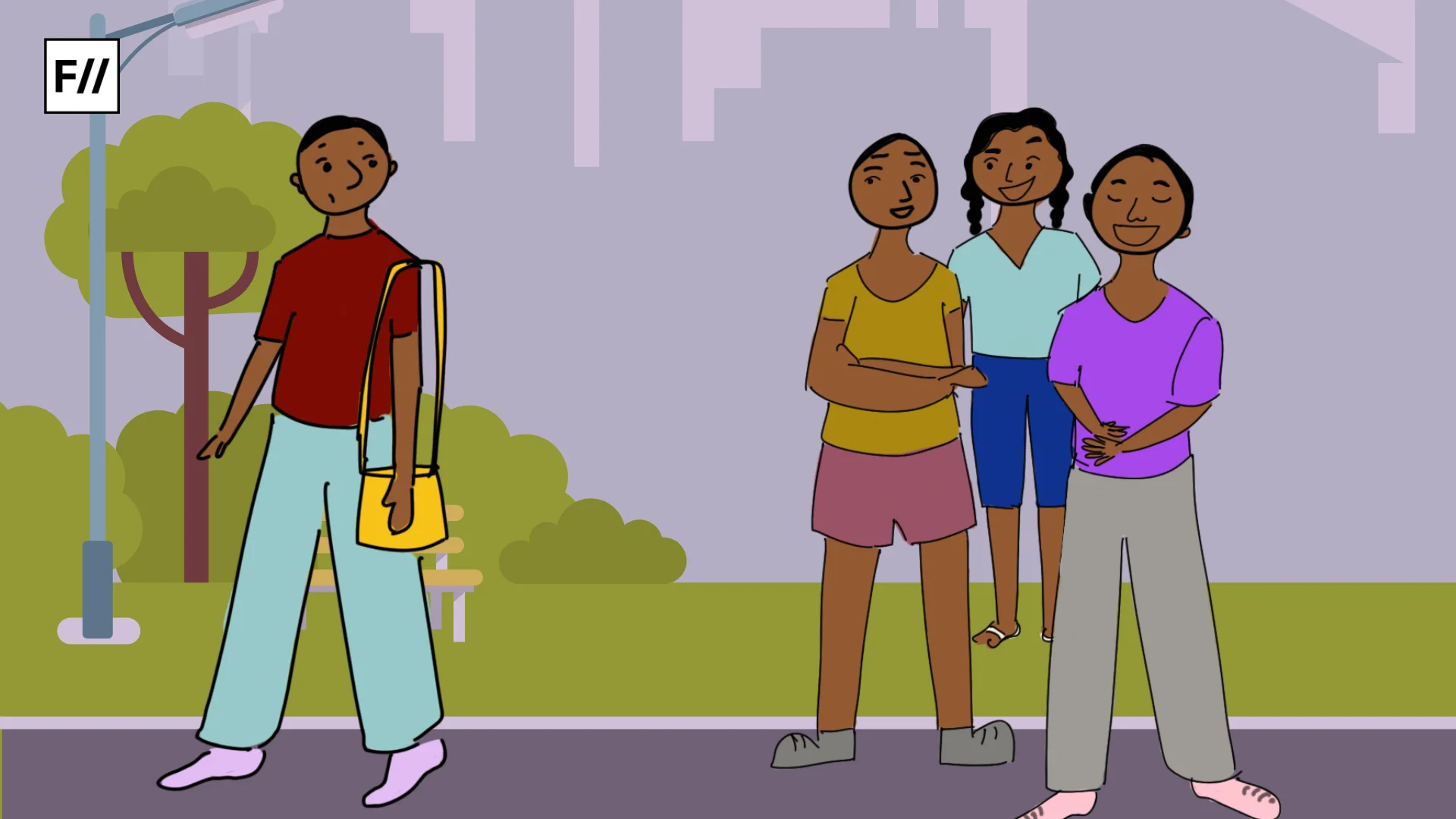
I always resisted driving if my sisters were travelling with me. I used to fight to cook in place of my sisters. I was a rebellious kid who used to fight with my mother if she used to stop my sister from wearing clothes of her own choice. There are a lot of hurdles that stemmed from my caste that I had to face every day being a feminist.
An intersectional feminist and an orthodox household
In my household, the workers were always people from marginalised castes, and they were allowed to work only in the fields. The househelp would be a Jaat person only who is from a lower class. My mother would never wash the utensils that the Muslim or lower caste labourers used. First, they had to wash the utensils, and then my mother used to clean them again.
Being a feminist who always believed in intersectionality, I resisted this caste discrimination. I always used to argue that the grains that we use to make rotis at home are from the fields where these lower castes have worked. You can suck their sweat and blood and eat the food out of their hard work but won’t let them enter the house. Where a gay person being a feminist was so difficult, to have talks of intersectionality never suited my family’s Jaat privilege.
A Jaat gay in university spaces
Delhi was always a dream. In a rural and extremely orthodox village in Rajasthan, I felt suffocated. I had wings, dreams, and imagination to fly in the rainbow-coloured sky, but there was no wind beneath the wings. From a very young age, I aspired to come and study at Delhi University where the quality of education was a priority. I wanted to come more because I wanted to say out loud that I am gay.
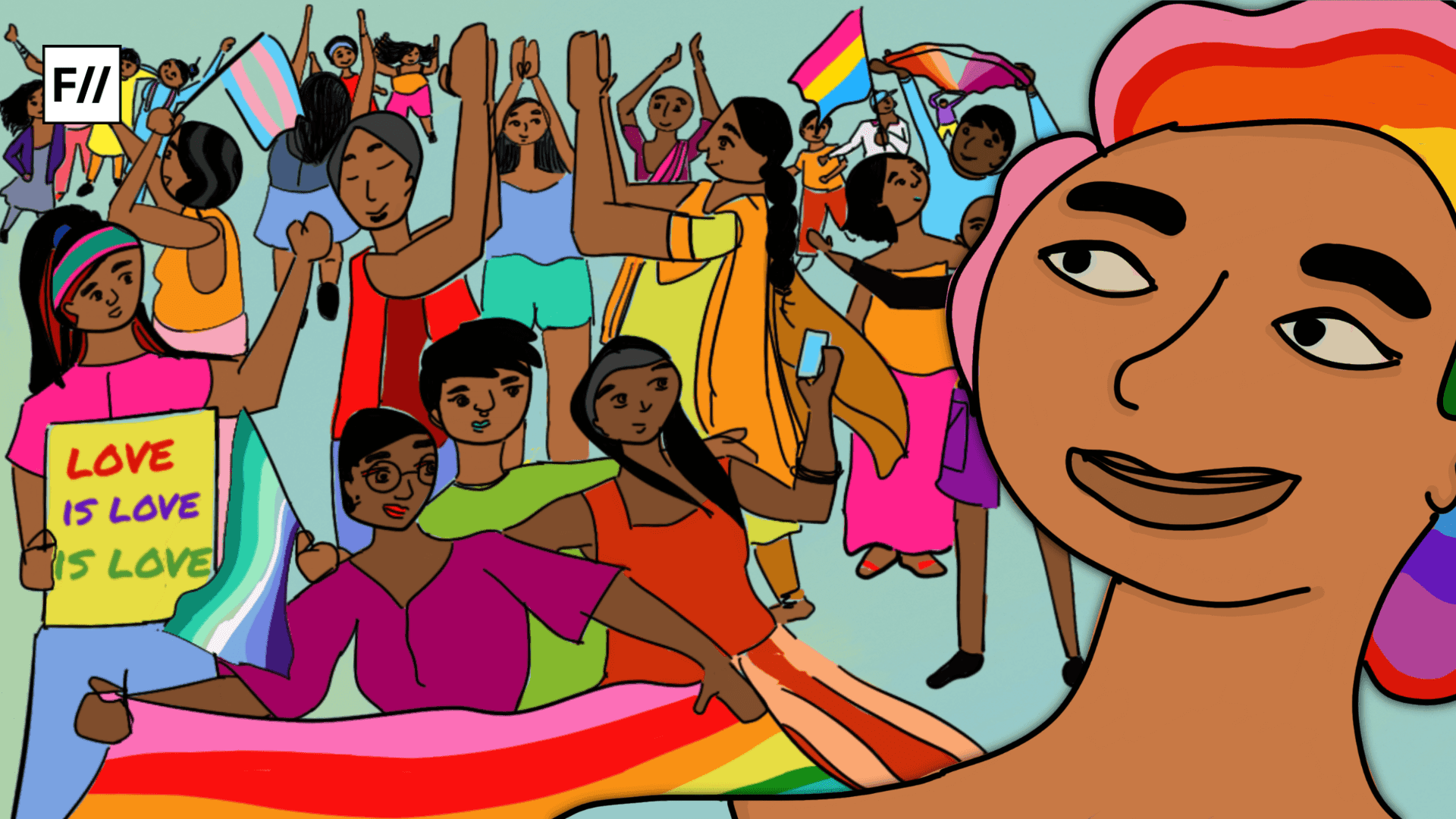
My physical characteristics are effeminate, and they do not fit in the box of how a cis-het Jaat man in a patriarchal society is expected to be. When I got admission into Ramjas College, on the very first day, among a gathering of friends, I said, ‘I am not straight.’ I made wonderful queer and straight friends at the university, but a few months ago, there was a conversation about caste going on at a friend’s gathering. There I exploded the bomb. I revealed that I come from a proper Jaat family. Everyone was shocked. My closest friends found it funny that a gay guy who is so effeminate is a Jaat.
However, they were also not wrong. The university spaces of our country are slowly becoming a space of gundaism. Every day there is news that a few men have trespassed women’s college walls and harassed female and queer students. This is a larger part of the right-wing attempts to make the university an inaccessible space for gender minorities. These goons involve a larger number of Jaat chaps boasting of their toxic masculinity and caste privilege. In a space where Jaat male students are seen as bulky men who are always ready to indulge in violence and intimidation, a Jaat gay has to struggle.
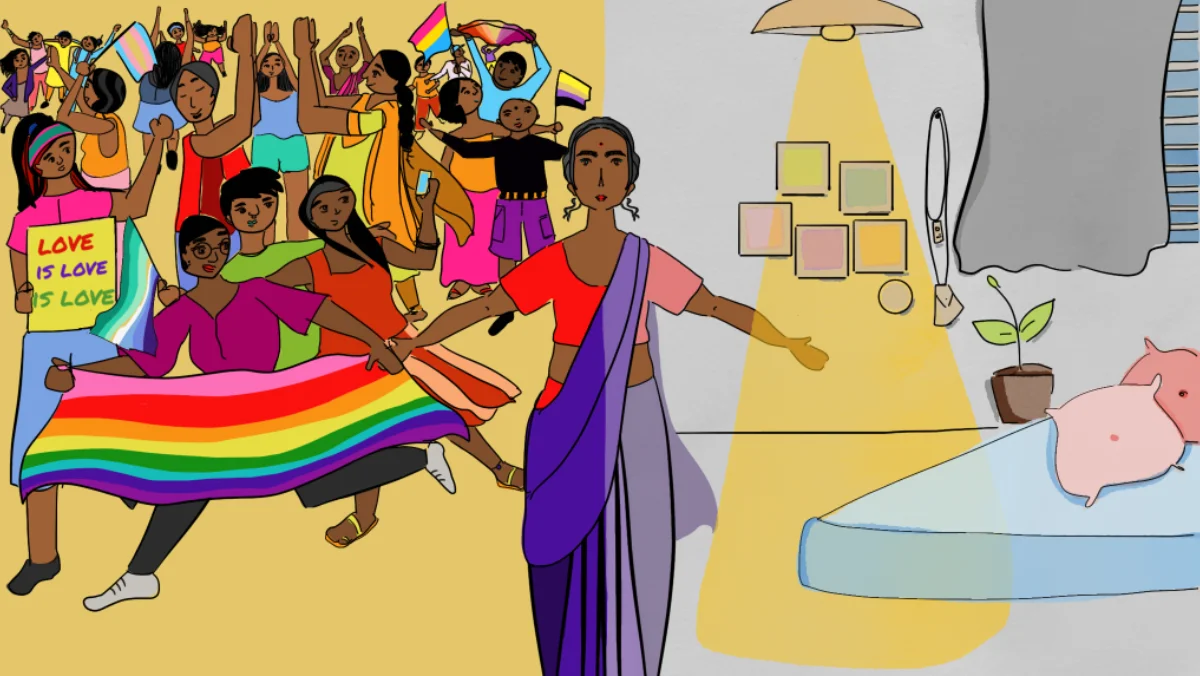
Being a Jaat and feminist is an everyday struggle for me. Whenever I go back to my village, no matter how much I try, I have to perform my caste roles along with the gender roles. I am mocked for my walk and the way I speak. My talks, which are against caste and patriarchy, are often pushed under the mat. I feel tired. I feel suffocated. I ask myself again and again, when will these Jaat expectations leave this gay feminist boy?
About the author(s)
Jatin Chahar (he/they) is a student of Philosophy at Ramjas College, University of Delhi. His writing stems from critical reflection on various socio-political issues, particularly gender and politics. Art is resistance for him. He loves making art that serves the masses and brings forward the realities of the power structure of contemporary societies which excludes marginalised sections of society. He is also into photography and filmmaking. His major areas of research interest are caste, class, and their intersection with sexual fantasies.
